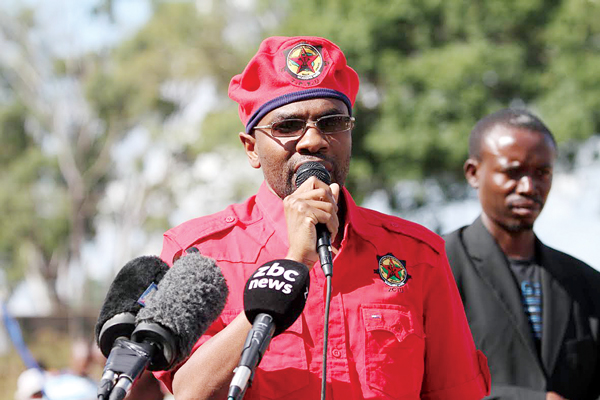
BY VENERANDA LANGA ZIMBABWE Congress of Trade Unions president Peter Mutasa (pictured) yesterday described the country as a “failed State” given the high poverty levels, decaying infrastructure, the odious debt situation caused mostly by poor governance and deep-seated corruption which has seen the country losing billions of dollars to a few powerful individuals. Mutasa said this while contributing to a virtual discussion on the country’s debt situation. The discussion, followed by thousands of citizens through social media channels, was organised by the Zimbabwe Coalition on Debt and Development and the Crisis Coalition in Zimbabwe. Different speakers from civil society and legislators demanded transparency and access to information on the US$8 billion external and US$12 billion domestic debts to enable the public to separate odious debts from development-oriented arrears. “In 2013, the country’s external debt was US$5,8 billion and now it is US$8 billion and it shows that our priorities have been very wrong as we have been spending on wrong things like the war in the Democratic Republic of Congo (DRC) and yet our poverty levels are at 74% and 34% of people are in abject poverty and the infrastructure is decaying,” Mutasa said. “All these debts are incurring huge interest which is heaped on the taxpayer and what we have now is a failed State which we need to rebuild through active citizenry.” Zimcodd executive director Janet Zhou said Zimbabwe’s debt situation was unsustainable as the debt to gross domestic product (GDP) ratio is as high as 84% — way too high compared to the size of the country’s economy. Zhou said although part of the US$8 billion debt was incurred by the Rhodesian government during the war, the post-independence Zimbabwean government went on to incur unjustified debts which did not benefit ordinary citizens. “From the domestic debt front, we saw a leap from November 2017 of domestic debt from US$4 billion to US$9,5 billion in a period of eight months and there are still questions on what this domestic debt was acquired for,” Zhou said. Parliamentary Portfolio Committee on Budget and Finance chairperson Felix Mhona said while Parliament had exposed lack of compliance on debt procedures, the legislative framework still needed strengthening to ensure the Legislature has teeth to punish non-compliant arms of the State. African Parliamentarians Network against Corruption Zimbabwe chapter chairperson Priscilla Misihairabwi-Mushonga blamed endemic corruption, saying “the State has been literally taken over by capitalists in the private sector”.











